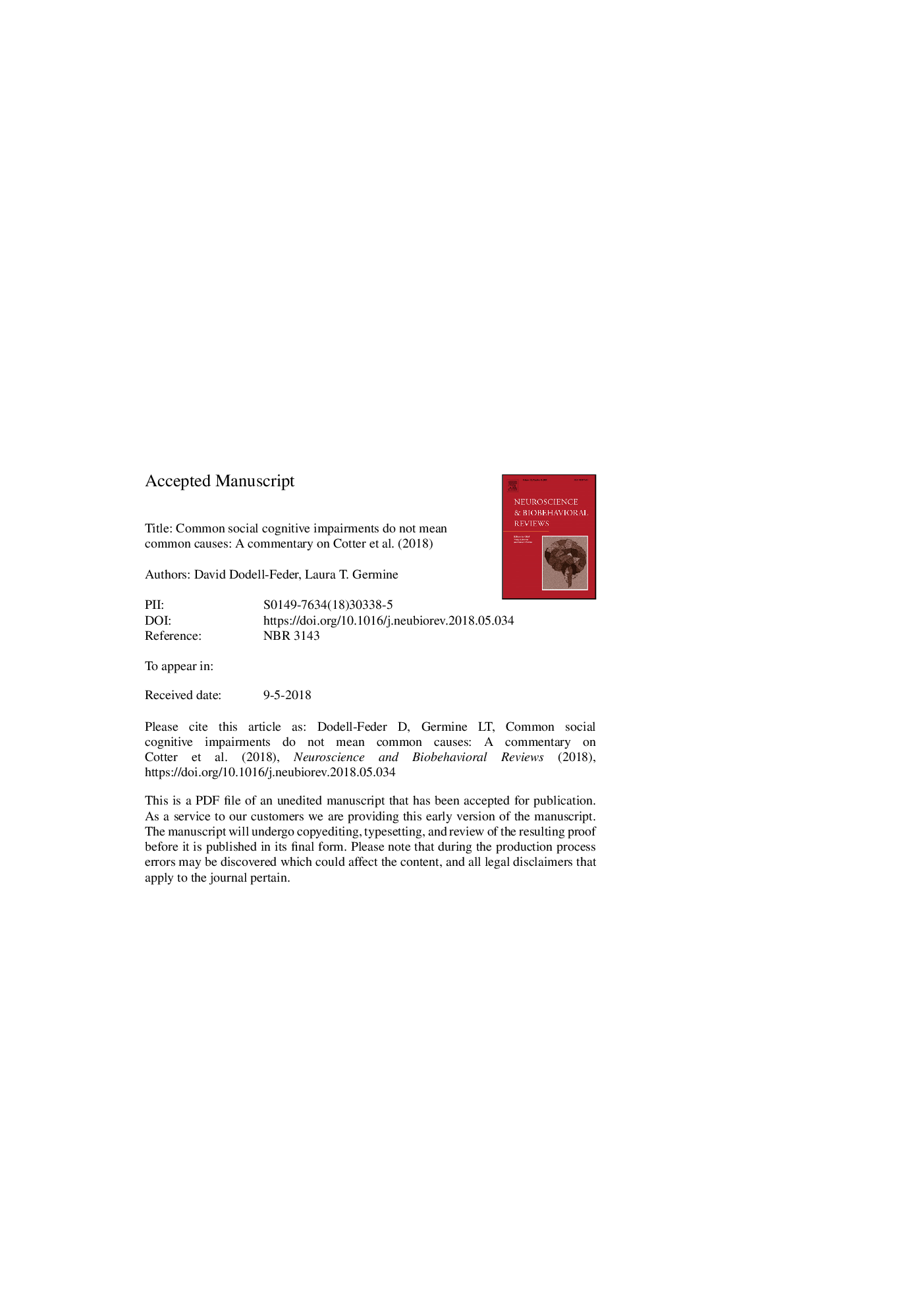| Article ID | Journal | Published Year | Pages | File Type |
|---|---|---|---|---|
| 7301778 | Neuroscience & Biobehavioral Reviews | 2018 | 7 Pages |
Abstract
Many clinical conditions, ranging from psychiatric to neurodegenerative illnesses, are associated with impairments in the processes by which we perceive, interpret, and respond to social information; a suite of abilities known as social cognition. Through a systematic review of meta-analyses, Cotter et al. (2018) present a compelling view of social cognitive deficits as a core phenotype of many clinical conditions. However, we caution against one potential interpretation of their findings, namely, that similar social cognitive outcomes are produced by similar causes. Specifically, we argue that while the outcome may look similar across clinical conditions (i.e., global social cognitive deficits), the cause and nature of those impairments are likely to differ, and, as a consequence, so too will its remediation. We advocate for the development of better methods for assessing social cognition, which may speak to the varying nature of social cognitive impairment across conditions. Ultimately, a better understanding of how social cognition is impaired will facilitate the development of more targeted, more effective treatments, that will improve patient care.
Related Topics
Life Sciences
Neuroscience
Behavioral Neuroscience
Authors
David Dodell-Feder, Laura T. Germine,
